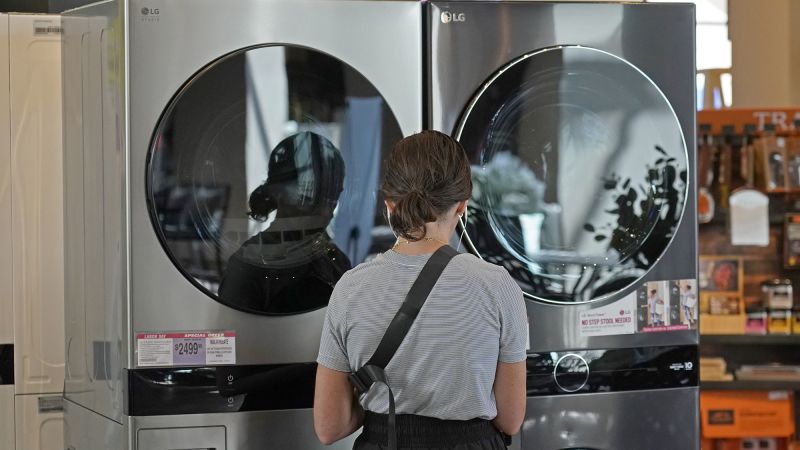The Trump administration is set to expand its 50% steel tariffs to include consumer appliances containing steel, potentially raising costs for items like refrigerators and dishwashers. The Commerce Department announced that starting June 23, these so-called derivative products will be taxed an additional 50% based on their steel content. Affected products include refrigerators, dryers, washing machines, dishwashers, freezers, ovens, garbage disposals, and wire racks. President Donald Trump’s broader tariffs have already increased costs for some American manufacturers due to the lack of affordable American-made alternatives. American appliance makers have complained about competitors effectively bypassing tariffs by shipping completed products not subject to the 50% levies. To address this, the administration introduced an inclusion process aimed at preventing foreign competitors from circumventing tariffs. Theoretically, tariffs on imported appliances will make American-made alternatives more competitive compared to foreign equivalents, which often rely on inexpensive parts and labor. At a US Steel facility in Pennsylvania, Trump announced the doubling of steel tariffs to 50%, arguing that some companies were evading the previous 25% rate. He praised the tariffs for revitalizing the US steel industry, claiming they prevented its disappearance. Although tariffs may have boosted the struggling American steel sector, they could also increase prices for key materials used in construction and manufacturing—industries Trump aims to support. Since the announcement of the 25% tariff in March, spot prices for domestically sourced steel have risen as American producers face less competition from foreign steel. When Trump first imposed steel tariffs during his first term, US production modestly expanded but led to rising costs for cars, tools, and machines, reducing those industries’ output by over $3 billion, according to a 2023 analysis by the International Trade Commission. — new from CNN
